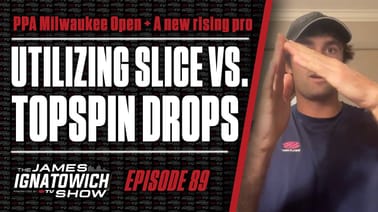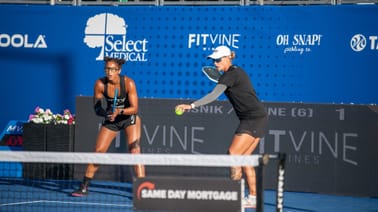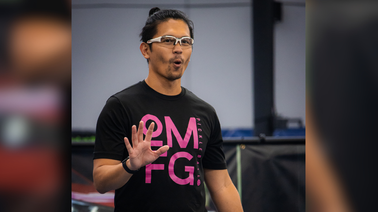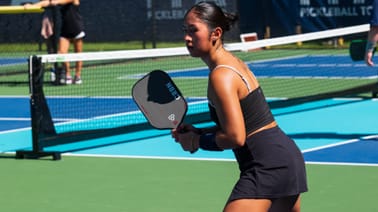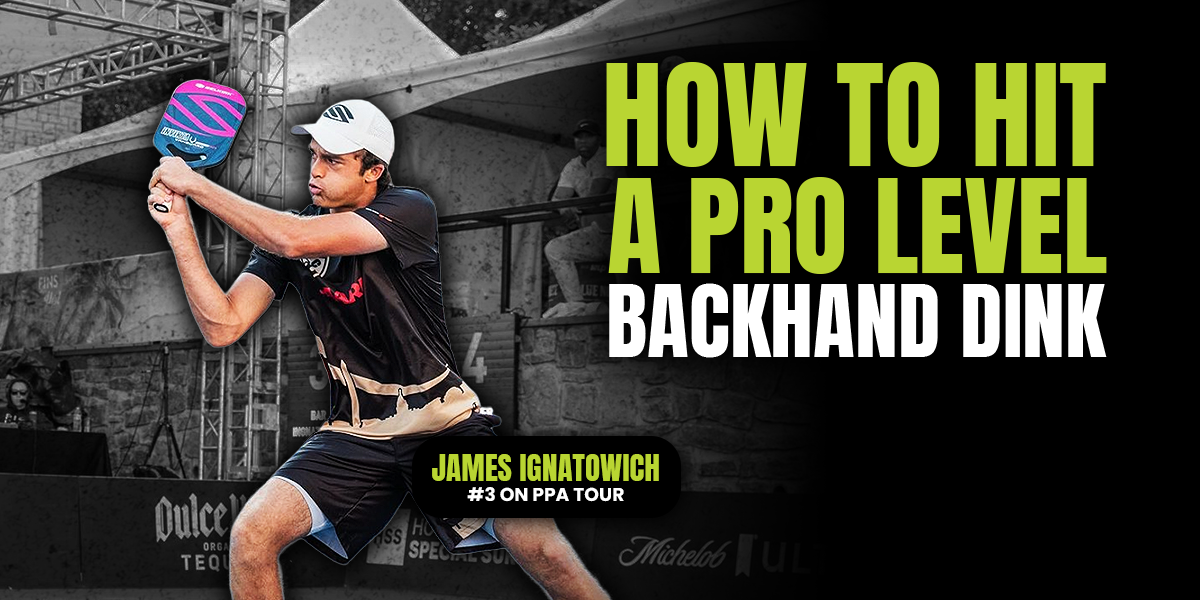
Learn How to Hit a Pro Level Backhand Dink Like James Ignatowich
James Ignatowich has one of the best two-handed backhand dinks in all of pickleball. In a recent video, the Selkirk pro with a 6.8 DUPR teaches this shot to Connor Derrickson, fitness expert and trainer to several pickleball pros; he's also a 3.5-level pickleball player.
You can watch the video here. We've included some key takeaways below.
Rule 1: Cup the ball
One of the first things James emphasizes is the importance of using a cupping motion. Unlike a forehand topspin dink, where you might hit under the ball, the two-handed backhand dink requires you to hit around the outside of the ball.
This is especially useful for cross-court dinks, where the ball will roll away from your opponent.
Rule 2: Bend your knees
Executing a successful two-handed backhand dink isn't just about hand positioning; it's also about your body's stance. Bending your knees significantly is crucial since you must get under the ball with your body rather than your paddle.
This means you must really exaggerate your knee bend.
It may feel awkward initially, but this helps you stay low and maintain control over the ball. If you're having trouble, focus on your offhand (the left for right-handers), really hitting the side of that ball.

Rule 3: Stay down
Many people make the mistake of lifting their bodies too early and pulling up their heads. You can avoid this by imagining there is something on top of your head, and you're not going to lift it until after you make contact with the ball.
As long as your paddle is on the ball, your body and head should stay down.
Rule 4: Vary your targets
James explains that there's a misconception – or at least it is in his mind – that players need to disguise their shots. In the video, he says it's less about disguising your shots and more about disguising your target.
When he's crosscourt dinking, everyone knows it, but where the ball is going to go is what he tries to change up. Sometimes, he'll go more middle (inside foot) or out wide.
Thanks to James and Connor, you now have the tools you need to master the two-handed backhand dink.


Love Pickleball? Join 100k+ readers for free weekly tips, news & gear deals.
Subscribe to The DinkGet 15% off pickleball gear at Midwest Raquet Sports



